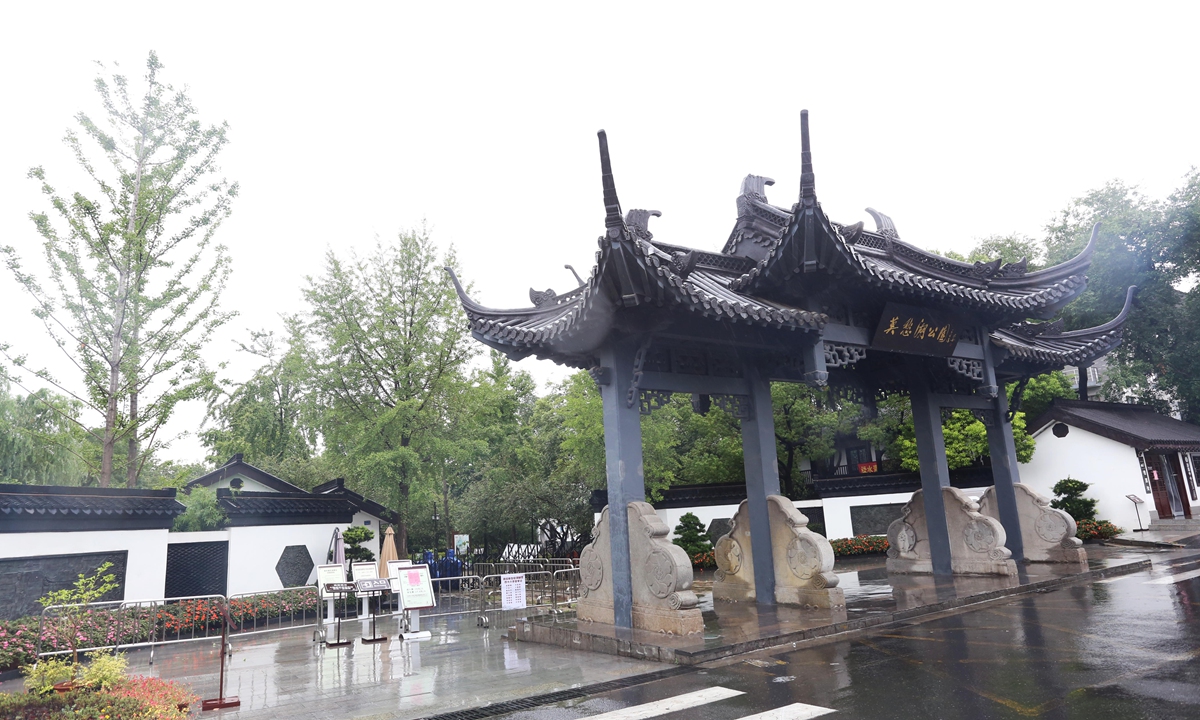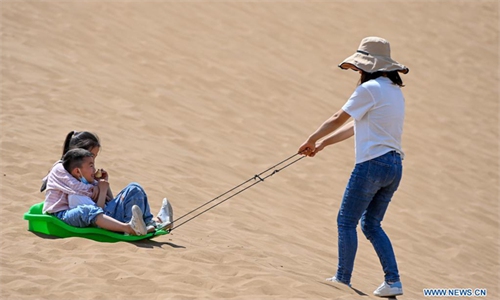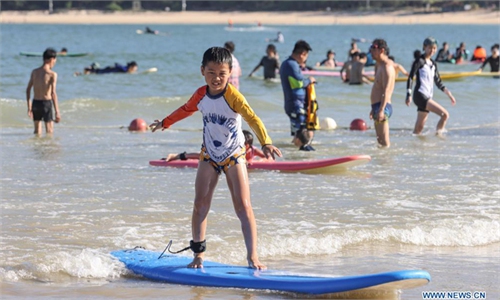
The Mochou Lake Park in Nanjing, East China's Jiangsu Province is closed due to Typhoon In-Fa. Photo: VCG
A total of 153 COVID-19 cases were reported in Nanjing, East China's Jiangsu Province from July 20 to Tuesday, which cooled the region's and the nation's tourism industry, which was expected to thrive during the 2021 summer travel peak. One industry insider said that the revenue of his branch company in Nanjing was estimated to decline by nearly 50 percent.
Since the first nine reported cases at the Nanjing Lukou International Airport, the chain had expanded to five provinces and 10 cities as of Wednesday. The Nanjing government on Tuesday announced several pandemic control measures including the closure of all entertainment places and limits on how many people can enter restaurants and shopping malls.
Xu Xiaolei, marketing manager at China's CYTS Tours Holding Co, told the Global Times on Wednesday that the pandemic had a strong influence on the company's branches in Nanjing.
A staff member of a hotel near the Confucius Temple, one of the most famous scenic spots in Nanjing, said that all scenic spots in Nanjing had been closed.
A staff member of the Nanjing Zhongshan Mountain National Park told the Global Times on Wednesday that the park was closed due to Typhoon In-Fa.
The impact of the pandemic was reflected on the Chinese stock market, where tourism and hotel shares fell 2.42 percent on Wednesday.
Xu mentioned that Nanjing and Jiangsu Province play several essential roles in the domestic tourism and transportation sectors.
"The influence of the regional pandemic in Nanjing can expanded to tourism in several provinces," said Xu.
Meng Lilian, an analyst from the Sichuan Tianfu Health Industry Research Institute, told the Global Times that the point in time of the pandemic outbreak in Nanjing may largely affect the revenue of Nanjing tourism industry in the summer travel peak.
"The influence of the Nanjing COVID-19 outbreak can be seen in several provinces, but the overall damage to the domestic tourism industry will be controlled if the spread of pandemic is stopped," said Meng.
China's domestic tourist numbers in the first half of 2021 had recovered to 77 percent of the level in 2019, and revenue in the tourism sector recovered to 70 percent compared with 2019, according to a report issued by China Tourism Academy in July.
Jia Jianqiang, CEO of 6renyou, an online tourism agency in Beijing, told the Global Times that the recovery of China's tourism industry is a general trend in 2021.
"The high rate of vaccination and accumulated quarantine experience may ease the negative influence caused by regional outbreaks," said Jia.



